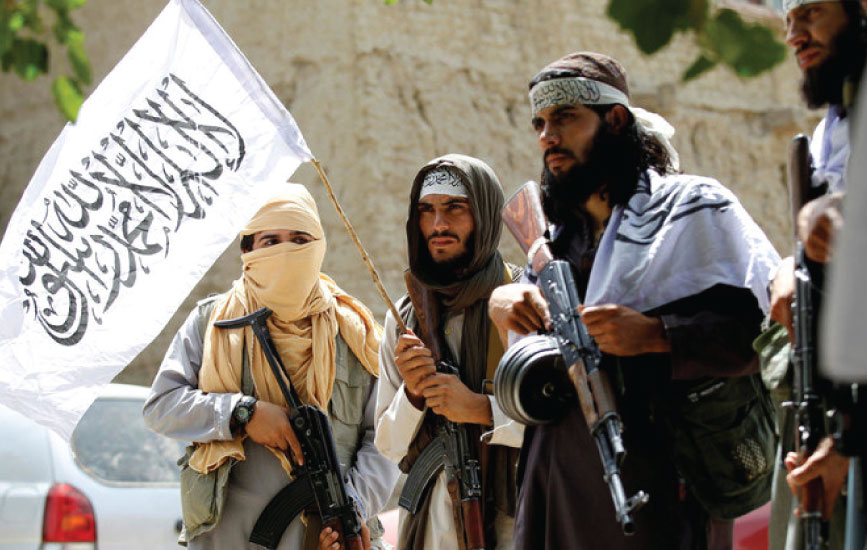The recent clash between Pakistan and Afghanistan has again demonstrated how the border between the two countries is volatile, mistrustful, and one of the most vulnerable regions in South Asia. Despite the trilateral talks between Pakistan, Afghanistan, and China this year, the latest one being held at the end of August, the bilateral relations between Pakistan and Afghanistan are once again in crisis. The airstrikes of Pakistan in response to the attacks of Tehreek-e-Taliban Pakistan (TTP), in the vicinity of Kabul, along with the ensuing war of words, indicate that the region is caught in a vicious cycle of militarization and diplomatic stalemate.
Terrorist attacks by TTP and their safe havens in Afghanistan are the primary sources of the military conflict and the current diplomatic rift. Having been established in 2007 in the context of the so-called war on terror, the TTP is still ideologically linked to the Afghan Taliban. It tries to impose an extreme vision of Islamic law, and it has long been insisting that the merging of its tribal areas with Khyber Pakhtunkhwa should be reversed. Pakistan has been adamant that TTP fighters are using the Afghan territory to carry out terrorist activities inside the country, taking advantage of the uncontrollable areas and the ambivalence of Kabul. Taliban government, however, dismisses these claims, with the government of Islamabad being urged not to make provocative utterances. Such denial and inaction by the Afghan Government have virtually frozen substantial diplomatic engagement.
The most recent wave of violence seems to have been instigated by an upsurge in the number of attacks on Pakistani soldiers. These well-organized and fatal attacks have been directed at the military posts along the frontier. Islamabad’s retaliation, albeit unofficially, indicates its frustration since it believes that Kabul neither has the intent nor the ability to contain TTP. The retaliatory attacks by Pakistan were conducted when the Afghan Foreign Minister Amir Khan Muttaqi was on an official visit to India. Some analysts believe that this visit has prompted Pakistan to take a firm decision to intensify its military activities. The timing is significant since Pakistan has made it clear that it will not take diplomatic optics lightly, which may imply that Kabul is inclining towards New Delhi and neglecting the security requirements of Islamabad.
The close political affiliations between the two Taliban groups speak volumes about Kabul’s reluctance to take a stand against its Pakistani equivalent. Any decisive move against the TTP would destroy the cohesion and internal unity of the Afghan Taliban.
This Taliban conundrum is straining the internal security of Pakistan. The nation is already engaged in the eastern front, along with the struggle to control the political environment and keep the economy running. Therefore, Pakistan does not wish to escalate the conflict into a full-blown border war. But instead of acknowledging the TTP problem, which is the major cause of terrorism in Pakistan, the Afghan Taliban is framing the retaliation of Pakistan as a matter of sovereignty and termed it as violating Kabul’s sovereign territory. This can complicate future diplomatic engagements and create further mistrust. Addressing the media in New Delhi, the Afghan foreign minister stated that Afghanistan had achieved its military objectives and “paused” the ongoing conflict. It seems to be an expression that is tough with the indication of restraint. It is confusing that the government of Afghanistan claims to be in favor of peace but is hostile in its actions. Its policies have transformed the border into an arena of nationalist signaling.
China plays a very cautious mediator role which is silent but significant. The three trilateral talks that China is a part of this year are indicative of its strategic and economic interests. It perceives the instability in the Pak-Afghan border to be detrimental for the western belt and roads projects, and as one of the means through which terrorism may spread to the entire region. The meeting in August had counterterrorism as the highest concern, indicating that Beijing was concerned about the cross-border terrorism by the TTP and the impact it would have on the region.
However, now it seems that the scope of the diplomatic engagements with Afghanistan is narrow, as it is transactional and not transformational. It aims to provide incentives, investments and symbolic participation, but not alter the entrenched ideological connection between the TTP and the Afghan Taliban. Neither can it establish a credible regional counter-terrorism system which involves intelligence exchange, border surveillance, and inter-ideological cooperation. The influence of China resides in nudging Afghanistan and not commanding it on what to do.
Nevertheless, for the Afghan Government, unresponsiveness to non-state actors that destabilize neighbors would undermine its credibility as a responsible state actor. Failure to act against militant activities in Afghanistan means it will remain isolated, pressured by sanctions and have fewer chances of receiving aid. Taliban sovereignty needs to be transformed into a pattern of conscientious sovereignty- a sovereignty that acknowledges regional interdependence. The Afghan Taliban cannot achieve international legitimacy when transnational militancy is flourishing on its territory.
The international community is also interested in this equation. Other countries calling for restraint already are Iran, Saudi Arabia, and Qatar, noting how fast bilateral crises can escalate to broader instability. For international actors, which also include China, the short-run objective ought to be to institutionalize diplomatic involvement instead of depending on crisis diplomacy that is ad hoc. Nevertheless, the future of Pakistan-Afghanistan relations will depend on the political will of the Afghan government to deal with the TTP. Kabul cannot establish a foundation of legitimacy while holding groups of people who are the source of insecurity for Pakistan. Until such rogue elements are not in control, the frontier will continue to be a fault line between weak sovereignty and endemic insurgency.



